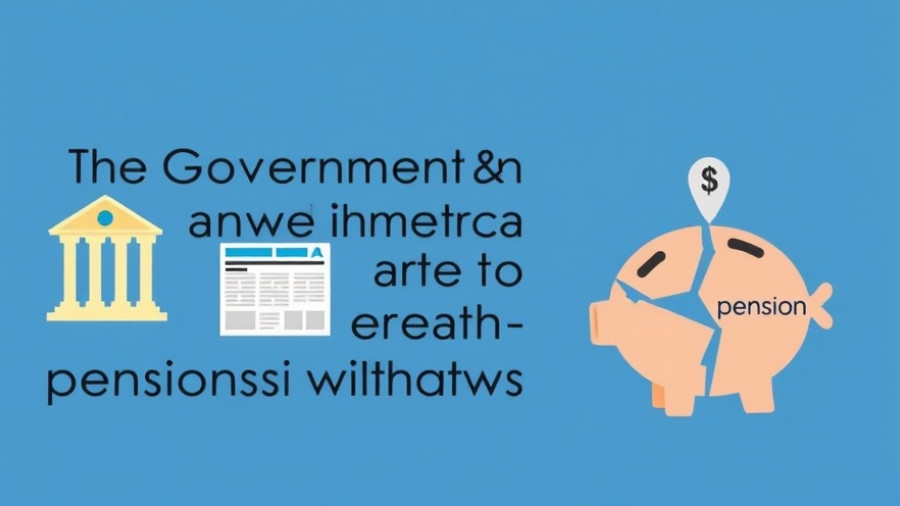
Understanding the Pension Withdrawals Dilemma: Who is Responsible?
Pension withdrawals in the UK have become a contentious issue, pitting government policy against media portrayal, bringing up essential questions about transparency and stewardship. With the advent of Pension Freedoms in 2015, individuals were given unprecedented access to their defined contribution (DC) pension pots, enabling a shift towards more personalized and varied retirement income strategies. However, this accessibility has prompted a complex interplay between perceived financial capabilities and actual financial security.
Historical Context and Current Challenges
The recent discussions surrounding pension withdrawals are reflective of a much larger historical narrative where transparency has significantly decayed. Experts like Edward Siedle, a pension forensic investigator, point out that many state and local government pensions have failed to uphold transparency, leading to mismanagement of billions of dollars that could have better served taxpayers and pensioners alike. As a result, the lack of transparency has consequences that ripple through public confidence in government-endorsed schemes.
The Role of Information and Media Influence
Media portrayal plays an essential role in how individuals perceive pensions and their withdrawal options. The Financial Conduct Authority reported that half of those engaging with their pension did so without seeking advice or guidance, raising concerns about insufficient understanding of the implications of their decisions. Consequently, many individuals are drawn to cash out their pensions to meet immediate needs or lifestyle aspirations, often at the expense of their long-term financial security.
Perception of Financial Risk and Decision Making
Decisions around pension withdrawals often hinge on individual perceptions of financial risk. Many find themselves weighing their immediate financial needs against the importance of long-term retirement planning. For instance, individuals in precarious financial situations might feel compelled to access their pensions for necessary expenses, while others with a comfortable income might consider it a source for funding life-enhancing activities. This decision-making process indicates a varied interpretation of financial capability, often muddied by the complexities of pension rules and a lack of adequate advice.
Looking Ahead: Need for Greater Clarity and Guidance
With the significant changes to pension access rules and the growing complexities of financial products, it is clear that consumers require better access to clearer guidance. The Department for Work and Pensions (DWP) has been working on promotional strategies, like the Pension Wise service, to provide users with structured guidance. However, reports suggest that many individuals, especially those in lower income brackets or facing unexpected life changes, are still missing out on these resources.
Conclusion: Accountability and Action Items
The onus lies not solely on the government and media but also on the financial services industry to foster a culture of transparency and assist individuals in understanding their options. As consumers are increasingly navigating the complexity of pension withdrawals, it is pertinent that better educational resources are made accessible. By ensuring that the public is adequately informed about their pension choices, we pave the way for a more financially secure retirement generation. Ensuring transparency in pension management is paramount, and it is crucial for individuals to advocate for their right to information.
For financial institutions and service providers: Now is the time to step up and equip your clients with the knowledge they need to make informed decisions about their financial future. Explore how to enhance your educational strategies around pension products and withdrawal options.
 Add Row
Add Row  Add
Add 




Write A Comment